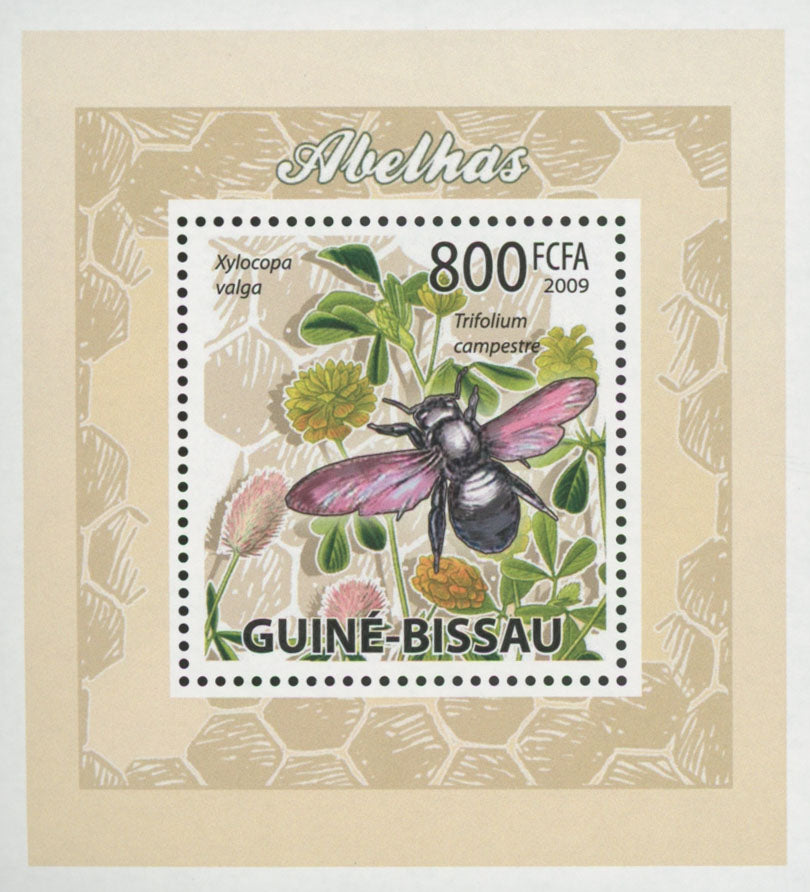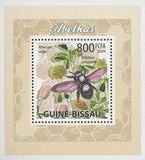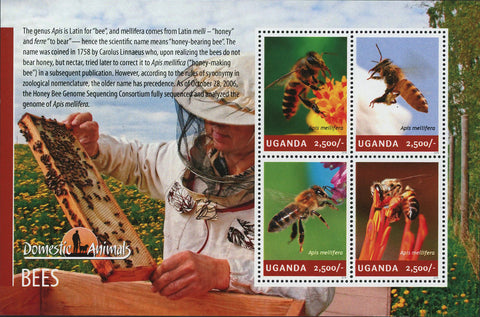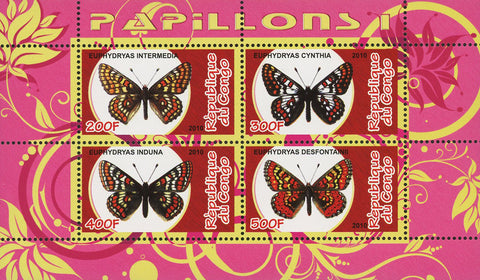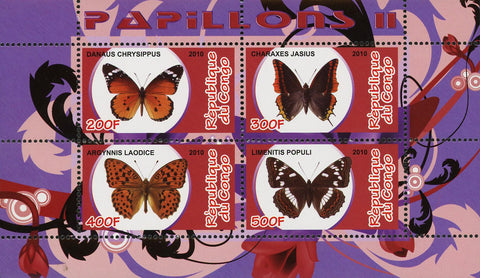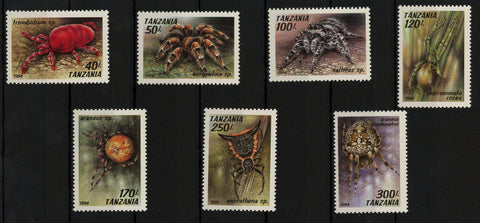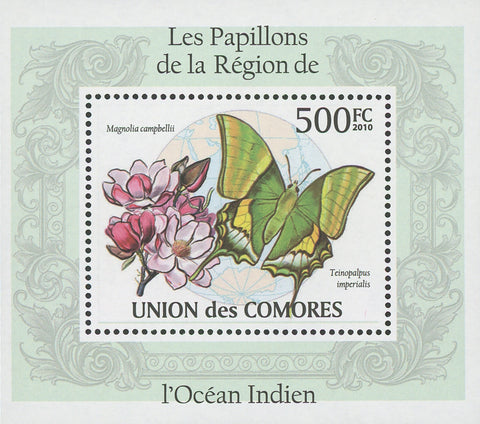Bees Plants Flowers Xylocopa Valga Mini Sov. Sheet MNH
- Product Sku:
- Categories Butterflies & Insects, Flowers, Guiné-Bissau
Bees Plants Flowers Xylocopa Valga Mini Sov. Sheet MNH
Bees are flying insects closely related to wasps and ants, known for their role in pollination and, in the case of the best-known bee species, the western honey bee, for producing honey and beeswax. Bees are a monophyletic lineage within the superfamily Apoidea and are presently considered a clade, called Anthophila. There are nearly 20,000 known species of bees in seven recognized biological families. They are found on every continent except Antarctica, in every habitat on the planet that contains insect-pollinated flowering plants.
Some species including honey bees, bumblebees, and stingless bees live socially in colonies. Bees are adapted for feeding on nectar and pollen, the former primarily as an energy source and the latter primarily for protein and other nutrients. Most pollen is used as food for larvae. Bee pollination is important both ecologically and commercially; the decline in wild bees has increased the value of pollination by commercially managed hives of honey bees.
Bees range in size from tiny stingless bee species whose workers are less than 2 millimetres (0.08 in) long, to Megachile pluto, the largest species of leafcutter bee, whose females can attain a length of 39 millimetres (1.54 in). The most common bees in the Northern Hemisphere are the Halictidae, or sweat bees, but they are small and often mistaken for wasps or flies. Vertebrate predators of bees include birds such as bee-eaters; insect predators include beewolves and dragonflies.
Fast & Free Shipping within U.S.A.
We Care for your order, Pack it carefully and ship it within 48 hours.
Satisfaction Guaranteed!
Please explore our store for more stamps, souvenir sheets, post-office collectibles and philately books and pre-philatelic items:
montecinos.philately

